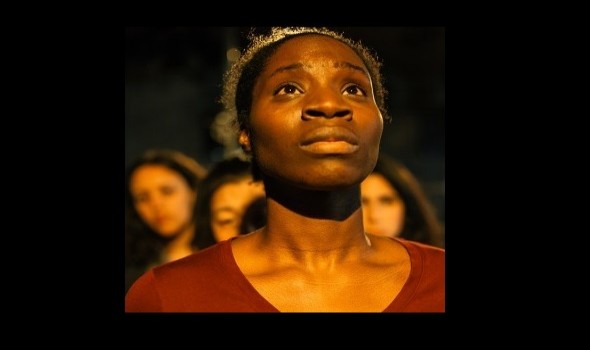Yarl's Wood women – the time of their lives
Yarl's Wood women – the time of their lives

'Welcome to Yarl's Wood' says the detention centre's warmly inviting website, under a photograph of six laughing women obviously having the time of their lives.
The delightful community image - which looks like a relaxed Open University study week in which participants happily work and play, enjoying a few days of well-deserved me-time - is followed by a letter from the director, outlining the services provided:
* a comprehensive range of welfare services
* healthcare
* faith and cultural provision
* educational and recreational activities
* work opportunities aimed at supporting residents throughout their period of detention and preparing them for release and resettlement
"We deliver our service based on a community model allowing residents as much freedom of movement and choice as possible," the director of the institution declares.
The insulting effrontery of such an absurd gloss is the answer to friends who ask, “What's the point of a grim play like The Scar Test? It's horrible and depressing and it's not my idea of fun to have my face rubbed in it.”
But you do need to. We all do. Because despite the evidence about the running of Yarl's Wood (and other prisons in which people who have done no wrong are locked up), the cruelty continues. Until Yarl's Wood is reformed, plays such as The Scar Test are vital.
Palestinian-Irish playwright Hannah Khalil says the one-hour play is based on interviews with women at Yarl's Wood and she has pressed the information into about 20 short scenes dramatising arrival, medical checks, solicitors' and Befrienders' visits, and the contortions of undressing for bed while feeling watched. These experiences are interwoven with traumatic flashbacks and gobbets of information.
Initially I was resistant to the whole enterprise, provoked by what seemed to be a formulaic approach, the theatrical between-scene use of actors struggling inside baggy jumpers and, yes, impatience with the thought that I would have to sit through a performance that would tell me nothing I didn't know about detaining migrants. In addition, it remained episodic, with no central storyline. But it won me over, thanks to a rising sense of the creepiness of incarceration, of the tension of indefinite imprisonment, and to a couple of powerful scenes.
At the end the five actors shout out a sentence, a reaction to Yarl's Wood, that you are bound to agree with, unless you are a xenophobic apologist for the state's inhumanity in dealing with people, and which encapsulates the justification of this flawed, intense, vital work.
* The Scar Test is at the Soho Theatre, 21 Dean Street, W1, until 22 July. Info: 7478 0100
+ Post-show discussions – Mon 10 and 17 July evening & Sat 15 and 22 July following matinees


